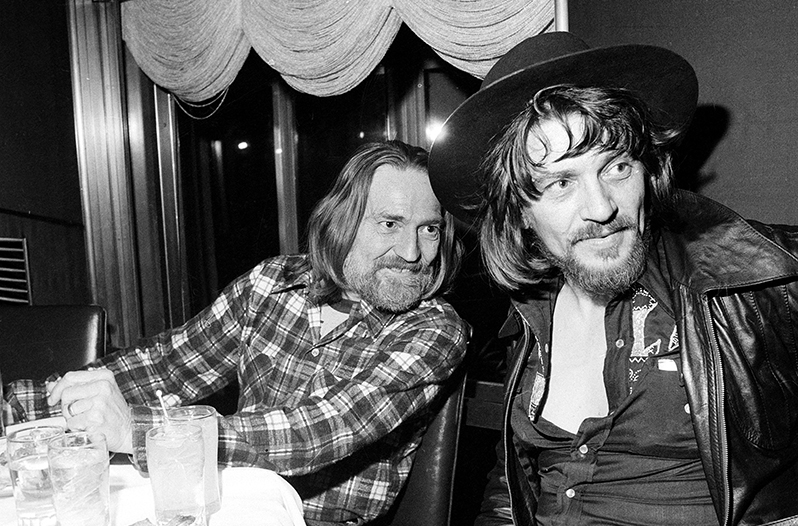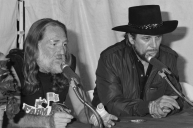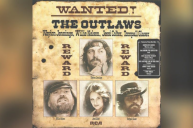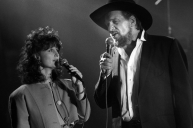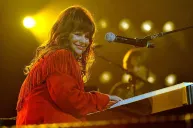In 1976, RCA Records released Wanted! The Outlaws. That album featured four artists who at the time didn't have much to actually do with the label but previously worked for the company. Eager to cash in on the burgeoning success of former artists, RCA head Jerry Bradley put the compilation record together and hired a Rolling Stone writer to draft the album credits.
Videos by Wide Open Country
Before long, that record became the first country album to sell one million units. It eventually spurred widespread commercial interest in "outlaw country." That term originally came about in the early 1970s to indicate a brand of country music outside the initial commercial grasps of Music Row. And it soon came to be a huge marketing factor within the genre.
Of course, the forefathers of outlaw country run parallel with country music itself. Hank Williams and Merle Haggard inspired outlaws and Nashville Sound superstars alike.
And in many ways, the spirit of the outlaw movement still persists. Artists like Sturgill Simpson, Jamey Johnson, Chris Stapleton, Lucinda Williams, and Margo Price routinely prove that. There are tons of artists who contributed to the outlaw movement, from Lee Clayton and Mickey Newbury to Kris Kristofferson. But let's take a look at some of the early heroes of outlaw country who defined the subgenre.
10. Tompall Glaser
Thomas Paul Glaser released a handful of records, most of them in the 1970s, and none more successful than his 1976 album The Great Tompall And His Outlaw Band. But Glaser was one of the four original artists on that legendary RCA record and a close confidant, friend, and producer of Waylon Jennings. In fact, Tompall may not have made the record if not for Jennings insisting he appears on it. That's because Jennings attributed much of his early 70s music to work with Glaser. The two, unfortunately, had a falling out amid Jennings' seedier years.
9. Steve Earle
Texas' own Steve Earle didn't release his first EP until six years after Wanted! The Outlaws came out, but his influence was felt immediately. Along with Ray Wylie Hubbard and Jerry Jeff Walker, Earle was a walking embodiment of the outlaw attitude. His most recent record is even called So You Wannabe An Outlaw.
8. Billy Joe Shaver
Infamous stories about shooting people aside, Billy Joe Shaver helped define the outlaw genre years before most people knew about it. Everybody from Elvis Presley to Kris Kristofferson recorded his songs, but his 1973 album Old Five And Dimers Like Me is a seminal entry into the early outlaw catalog.
7. Johnny Paycheck
Johnny Paycheck was smaller than most but larger than life. He was a musical chameleon who morphed throughout the times, but always kind of stayed an outlaw throughout the 1960s, 70s, and 80s (or an asshole, depending on who you asked). His 1977 album Take This Job And Shove It says just about everything you need to know about the man who sold millions of records off his boisterous personality.
6. Sammi Smith
Sammi Smith isn't just one of the original female outlaws; she's one of the original outlaws, period. After having country pop success with the Kris Kristofferson-penned "Help Me Make It Through The Night," Smith went the opposite direction of the Nashville sound and moved to Texas to hang out with Willie and Waylon. She spent the 1970s releasing troves of faithfully "outlaw" material.
5. Johnny Cash
https://www.youtube.com/watch?v=Lq0fUa0vW_E
Honestly, Johnny Cash eclipses the entire genre of country music, much less the outlaw country subgenre. As a cultural icon, Cash is on the Mount Rushmore of music. But "the Man in Black" played a huge role in the anti-establishment ethos of outlaw country. He was mixing rock n' roll attitude with country music decades before others and routinely stood up for the little guys, the downtrodden and the misunderstood.
4. Jessi Colter
Jessi Colter paved a lot of roads for women as the only female featured on that seminal outlaw album. Born Miriam Johnson, she adopted the stage name Jessi Colter after her outlaw ancestor Jess Colter, a train-robber. In the 1960s, Colter performed with ex-husband and legendary guitarist Duane Eddy. Using the name Miriam Eddy, she penned songs for Don Gibson and Dottie West. After divorcing Eddy, Colter met Waylon Jennings, whom she later married. Colter performed for years with Jennings, and they were frequent co-writers. She recently detailed her life in her memoir, An Outlaw and a Lady: A Memoir of Music, Life with Waylon, and the Faith That Brought Me Home.
3. Willie Nelson
Willie Nelson's reputation as a sterling Nashville Sound songwriter never quite earned him the respect he'd hope to get as an artist. So when he quit music and moved back to Austin to be a (bad) pig farmer, country music almost lost out on a legend. But thankfully he found solace in the borderless and eclectic scene of the 1970s Austin music scene and soon churned out some of the most influential country records ever, including Red Headed Stranger.
2. David Allan Coe
David Allan Coe is equal parts influential and under-appreciated. His debut 1970 album Penitentiary Blues was dark, honest and supposedly written from prison. He never shied away from controversy or boundary-pushing since, and next to Nelson, remains one of the most prolific content makers in the outlaw country genre.
1. Waylon Jennings
It's hard to argue with Jennings' place atop the outlaw country pyramid, both as somebody whose psychedelic electric guitar tone still dictates producer lexicon when looking for certain sounds, and as a guy who was such an "outlaw" that he wrote music about how the outlaw country marketing ploy was getting out of hand. What a badass. His son, Shooter Jennings, even followed in his outlaw footsteps.
